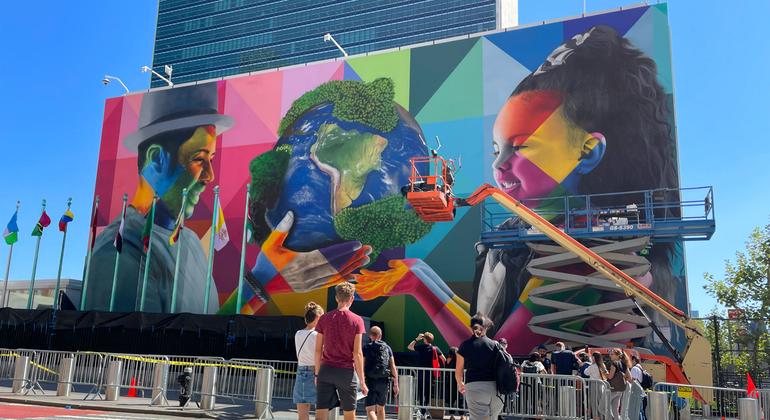These forward-looking policy briefs are designed to feed into UN Member States’ consultations analysing how the multilateral system can be strengthened for tomorrow’s world, said UN chief António Guterres, unveiling the latest strategy documents, at UN Headquarters in New York.
“The goal is simple”, he said, “to breathe new life into the multilateral system so that it can deliver on the promises of the United Nations Charter and the 2030 Agenda.
Responsibility to multilateralism
“As our world becomes more complex, more uncertain, and more dangerous, we have an even greater responsibility to strengthen the multilateral system”, he added, looking forward to next year’s much anticipated Summit of the Future, and this September’s SDG Summit, which he described as “the central event of 2023”.
He said the two summits were “key moments for us to come together around the decisions necessary to put the world back on track to a fair, inclusive, and sustainable future for all.”
Member States will decide on the scope of the Summit of the Future, the UN chief noted, and the proposals arising from it which will feed into a new and visionary Pact for the Future.
In all, 11 policy briefs will be released in the coming months, all with an eye on securing the vision behind Our Common Agenda, forging “an ambitious and interconnected package of ideas and proposals” overall.
Each one will outline how the ideas and recommendations will contribute to achieving the Sustainable Development Goals (SDGs), with gender and human rights, key cross-cutting themes.
‘Thinking and acting’ for the future
Mr. Guterres said keeping a clear eye on the future, was an important element to reaching the SDGs in the countdown to 2030.
The first policy brief, To Think and Act for Future Generations, “makes it clear that a secure and equitable future starts now.”
He said the international community lacked practical mechanisms and frameworks, “to turn these commitments into reality.”
“If we had taken action to prevent and end greenhouse gas emissions thirty years ago, the climate crisis would be far less threatening today. If we had taken steps to prepare for pandemics, COVID-19 would not have left chaos in its wake.
“Considering the future pays off in the present”, Mr. Guterres said.
Three steps
The brief proposes three “concrete steps” for consideration, inspired by current national initiatives.
1) The appointment of an envoy, a global voice for future generations, “raising awareness about the impacts on them of the decisions we take today.”
This Envoy for Future Generations, he said, could also maximize the benefits of the entire UN system.
2) Ideas to inform a political declaration, which defines “our duties to the future.”
3) The creation of a dedicated intergovernmental forum, where countries could build on the declaration, “and share experiences and innovations.” This forum would be “an opportunity for intergenerational thinking and the expression of intergenerational solidarity.”
“The brief therefore recommends the establishment of a Commission on Future Generations as a subsidiary organ of the General Assembly”, the Secretary-General concluded.



